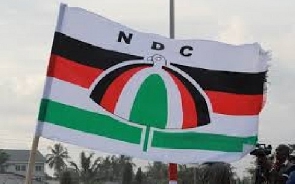Ghana Investment Fund for Electronic Communications has been awarded the 2017 World Champion in ICT application.This wonderful achievement was what motivated me this write this piece.
The NDC is a leftist political organization inclined to social democratic values and prescriptions.A party born out of the June 4th and the 31st Dec Revolution which has metamorphosed into a democratic political organization structured on hardcore values of social democracy.
What we must understand is the fact that the party has transited from its revolutionary state, into a fully fledged political institutions guided by certain stipulated principles. Social Democrats belong firmly in the progressive block who reject societal change by means of revolution and class warfare.
That is the difference between socialism,and social democracy. The social democrat,believes in the implementation of economic policies which will ensure equal distribution of wealth.
The split between traditional socialism and social democracy occurred in the 19th century when the later emerged as modern concept or branch of the socialists who hitherto,radically opposed and fought capitalism.Some of us still believe in the Marx orthodoxy but the NDC as an institution, is a social democratic organization.
Basically, the ideological position of the NDC is sharply opposed to the far right laissez faire capitalist system, it believes in building an alternative economic system to the NPP capitalist bias property owning system and strict private entrepreneurship through state intervention policies designed to improve the long term outlook for underprivileged groups or persons
All the socialist bias regimes in Ghana suffered same treatment or ordeal the Mahama administration went through in the 2016 elections. The western planned sanctions against the Nkrumah regime dislodged the regime's economic policies and made his overthrow easy and acceptable.
The economy however suffered serious reverses just like we witnessing,under the military regime,and under Busia. Ghana experienced serious balance of payment problems under Busia and the external support it received could not save the situation.
His policy reformation within the framework of economic liberalization culminated in exchange rate adjustment of about 42% by 1971,Ghana's debt increased by 65.1 million dollars and the problem of containing the country's external short term debt was defiant all the allies of Busia including Nixon, Hearth etc ignored all the requests he placed before them and Busia was told by his allies that if the managers of the economy had been conscious of the Nkrumah legacy and taken them seriously, Ghana wouldn't have gone through the recession.
Limann went through same mess, internal problems within the PNP and obstructive agenda by the opposition, affected policies of the administration to the extent that, Ghana recorded one of its worst inflation figures under Limann.
The Rawlings administration went through same political hell in the late 90s not because it abandoned its socialist policies, but the global economic recession at the time affected policies of the administration, fuel prices jumped above normal and general economic condition was terrible.
The pro right Npp, capitalised on the situation to finish the NDC leading to the 2000 defeat. The Kufour administration went for the HIPIC initiative which cleared us of all our debts with huge funds and support channeled into the economy by donor nations and organisations including the 700 million for poverty alleviation, $25 million for job creation etc yet, Ghana's worse unemployment situation was recorded under the administration in 2005, Ghana did not utilise this opportunity rather, we started contracting new loans and finally fell on the IMF.
Mills inherited an economy which was suffocating on its knees, ToR and GCB had been listed on the divestiture list, salary arrears etc. It had to implementat the Single Spine Salary Scheme which had been left on the table by his predecessor.
Mahama suffered serious economic challenges at the early stages,of his administration but was able to calm the nerves of the economy through the implementation of the senchi document.
Just like all social democratic governments, he focused on certain strategic pro poor policies, embarked on massive infrastructure development such as roads, hospitals, portable water provision, schools, first class markets, clinics, chip compounds, mobile clinics, trade booths, massive investment in the energy sector, libraries, equipments for our schools, free fertilizer and seedlings, free spraying of farms, increased producer price of cocoa, built more police stations etc.
These are the amenities the ordinary citizen needs to survive. Government's responsibility is to create an enabling environment for the masses to embark on their businesses and that was exactly what we witnessed under John Mahama.
At a place like Ofankor, traders use the pavements to sell their goods in the night and they arrive travel comfortably in the ayalolo buses to the place from different part of the capital. That is how improved infrastructure create indirect jobs.
More pharmaceutical shops are springing up across the country because of the many hospitals and clinics built under his administration, the ICT sector is,creating thousands of jobs across the country, aboadze and atuabo is offering jobs to hundreds of Ghanaians etc etc.
Losing an election should not put the NDC within the range of political parties lacking solid intellectual base or unable to use fully its intellectuals. The party (Npp) that promised Ghanaians that if they win elections,loans acquisition would be a thing of the past and told us that Ghana is too blessed with resources to contract loans, told us it issued the $2.25 billion bond to create fiscal space for massive borrowing.
Is this a party the NDC want use as its standard in measuring whether it is truly a social democratic organization or,have solid intellectual base. What the party must focus on is the current demographic situation of the country, the high percentage of the youth block and how active they've become politically, how to utilize their potential etc...
PART 1..
Opinions of Tuesday, 20 June 2017
Columnist: Andrews Krow



















